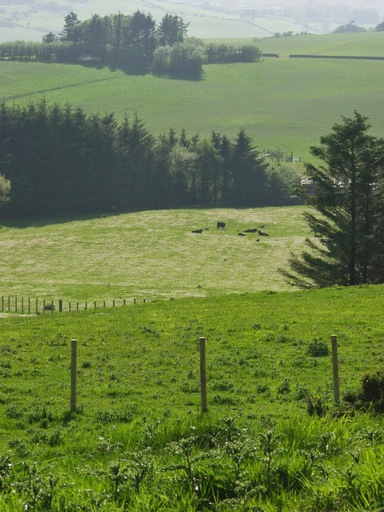Modular electric farm traction
Currently, farm tractors almost all burn diesel, and (with very few exceptions) burn fossil fuel. To reduce the carbon cost of farming, either electric or hydrogen powered tractors are necessary. This document considers electric power.
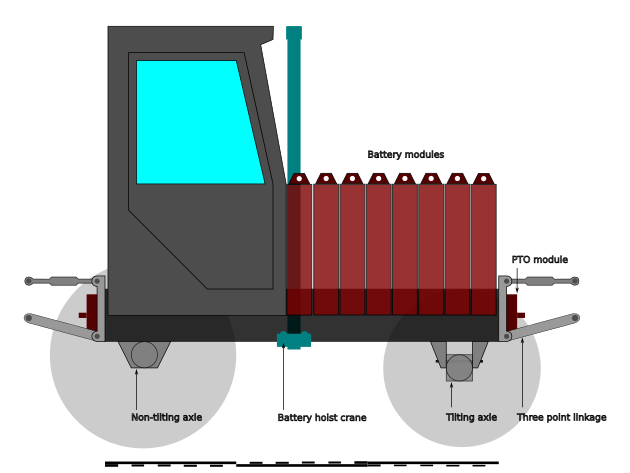
Battery weight, and modularity
The Storm
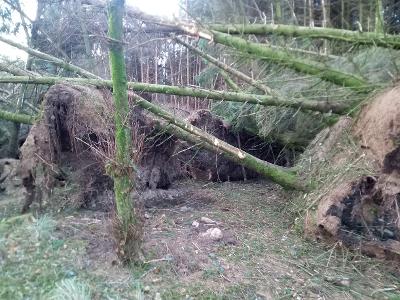
I did not expect the storm of the night of Friday 26th November to be exceptionally severe. I was aware that there was going to be a storm, and aware that the wind was expected to peak at a strength which rates as 'violent storm' on the Beaufort Scale. But such events are not actually that rare here. I made some preparations — I did close the cattle shed doors, for example, and fully fastened down the last new panel on the north side of the roof.
I thought of moving the stack of panels for the south side of the roof, that had not yet been installed, into the wood for safekeeping, but it would have been a lot of work and I very fortunately did not do it.
The Everyone Dies Event Class
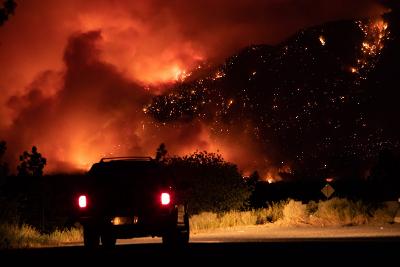
The climate, globally, is warming. Everyone acknowledges that. It’s not warming equally, or consistently, or evenly; I think everyone acknowledges that as well. Rather, the atmosphere is a heat engine: as you put more energy into it in the form of heat, you get more work out of it, in the form of turbulence. Winds get stronger, precipitation more intense, and heat waves hotter.
Human beings function in a fairly constrained temperature band. The healthy body temperature is 37° Celsius, plus or minus about one degree. The human body cools itself by evaporation. If water can’t evaporate from your skin, you can no longer cool yourself. Rather, you take on heat from the environment. Body temperature above 40° Celsius is a life threatening emergency, and above 42.3° denaturing of proteins, especially in the brain, may occur rapidly. This is not survivable.
Owning Scotland's Land
The white saviours, led by Benedict Macdonald, are again taking up the white man's burden to save Scotland's 'Wild Land' from the wild Scots. His business model is essentially to rent-seek off subsidies provided by the Scottish government intended to support rural communities and rural development, and divert the money, instead, to his friends in the City of London. Yes, this is just the latest cover of a very old tune, but it's long past time we said 'enough'.
The Right Solution
Where's the Steel?
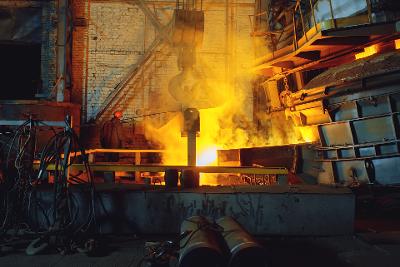
From the discovery of iron working techniques, about 3,200 years ago, up until the widespread exploitation of fossil fuels, about 250 years ago, iron and steel were rare, precious materials. The average person, across the whole world, almost certainly had less than 500 grammes of it. A knife, probably; some tool of their trade, possibly. Even members of the elite — warriors who fought in full armour, for example — probably owned no more than 30kg of iron and steel.
The use of fossil fuel changed all that, of course. There's about one car for every two people in the UK, and the average car now weighs 1857Kg, so that's almost a ton per person in cars alone, not to mention all the steel we now have in buildings and infrastructure. But it's fossil fuels that have made that possible. In future, we can't use them. So how much steel will we have?

